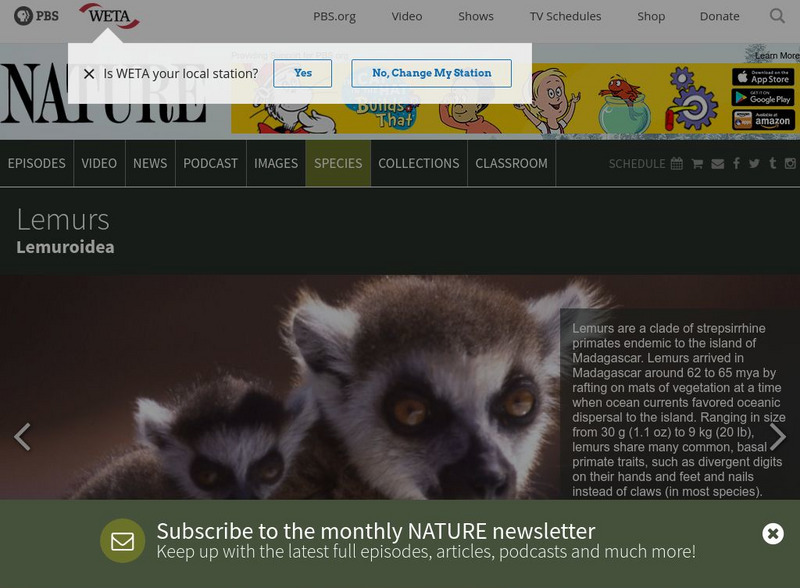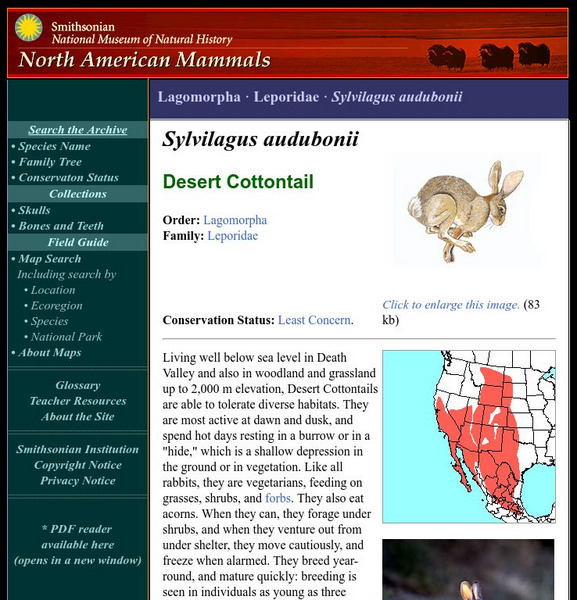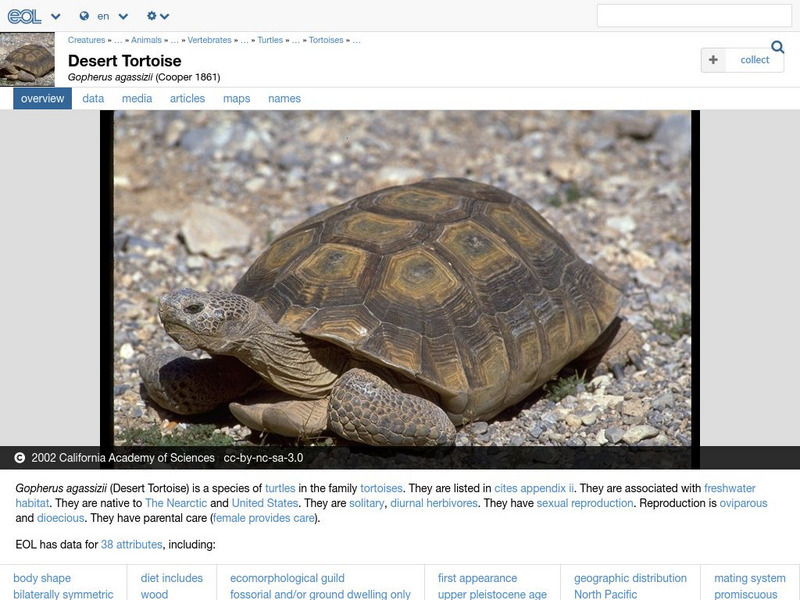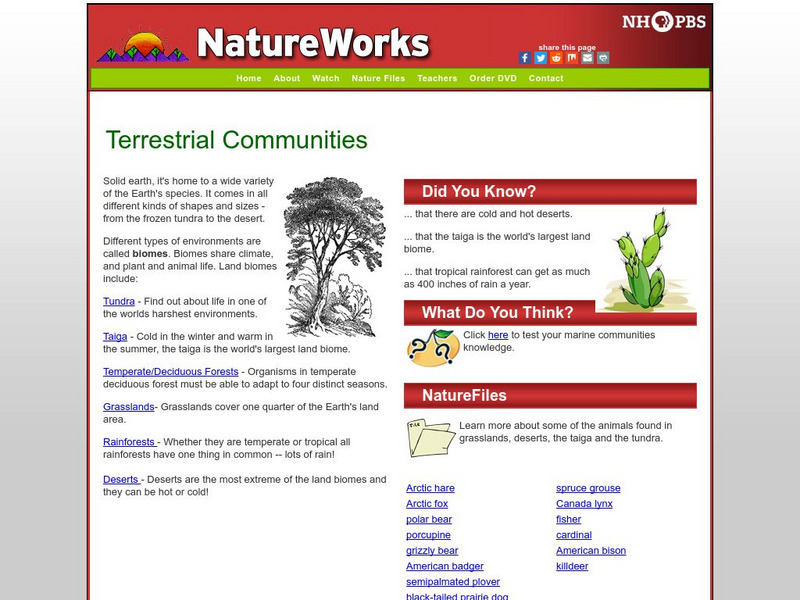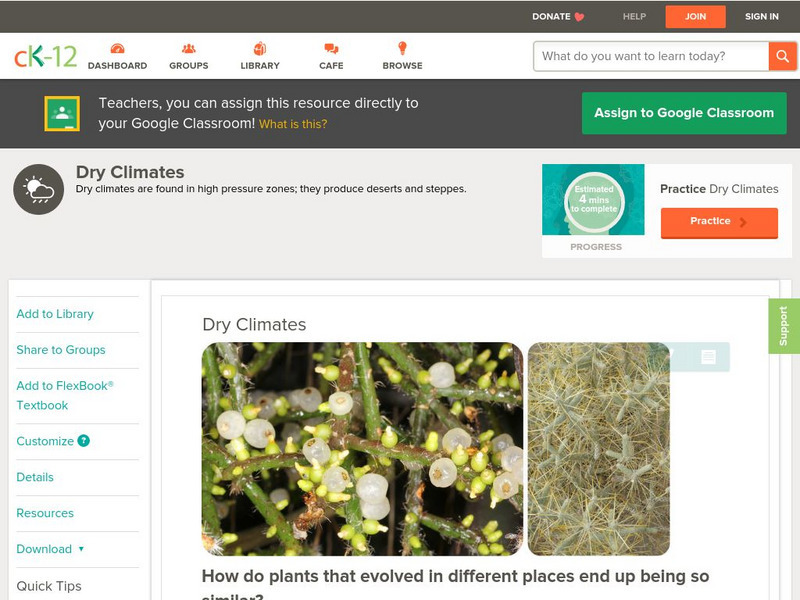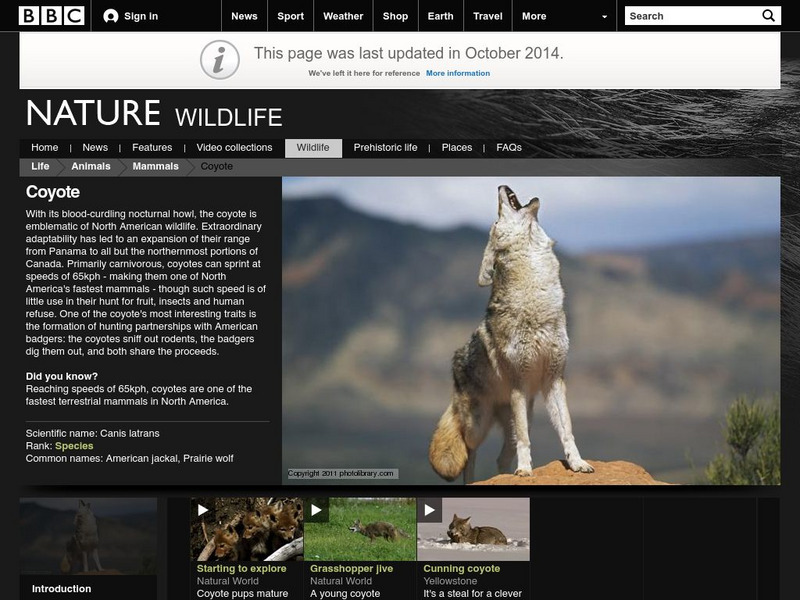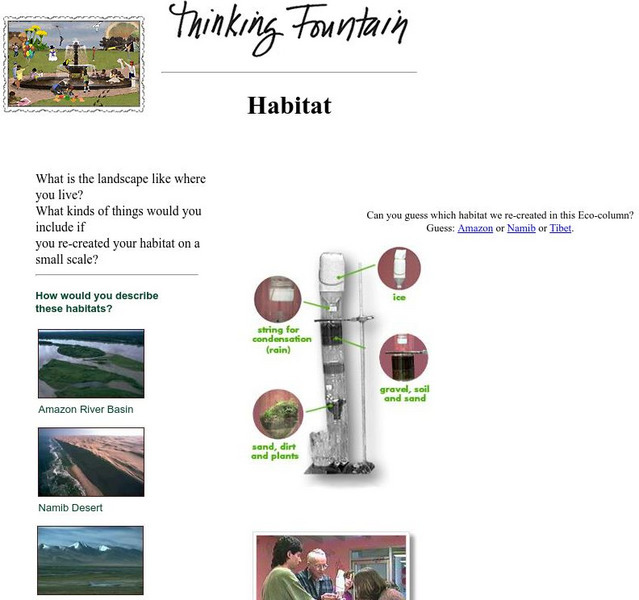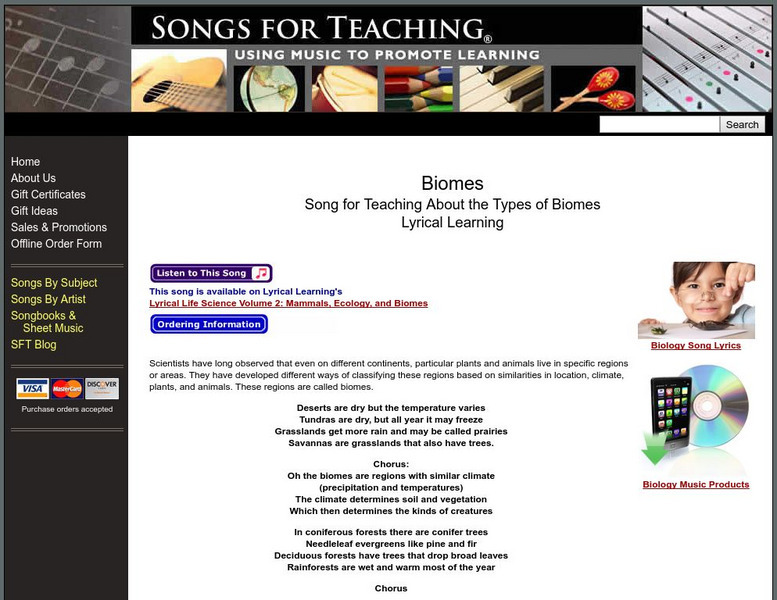PBS
Pbs Nature: Lemur
What do you know about lemurs? This site provides an insight into how lemurs live, their habitats, their social environments and more.
Smithsonian Institution
National Museum of Natural History: American Mammals: Desert Cottontail
Living well below sea level in Death Valley and also in woodland and grassland up to 2,000 m elevation, Desert Cottontails are able to tolerate diverse habitats. They are most active at dawn and dusk and spend hot days resting in a...
Encyclopedia of Life
Encyclopedia of Life: Desert Tortoise
The Encyclopedia of Life presents this in-depth overview of Desert Tortoises (Gopherus agassizii), including their habitats, size, conservation status, and much more. Images of this species and maps of its global distribution can also be...
ClassFlow
Class Flow: Plant and Animal Habitats
[Free Registration/Login Required] This lesson explains plant and animal habitats with brilliant pictures and photos. It also includes discussion and non-Activote questions.
NASA
Climate Kids: 10 Interesting Things About Ecosystems
Discover 10 interesting things about ecosystems, including features of coral reefs, rainforests, deserts, grasslands, freshwater ecosystems, the tundra, the ocean floor, wetlands, boreal forests and big cities.
PBS
Pbs Kids: Plum Landing: Can You Dig It?
Set in the Australian desert, players become bilbies to search at night for food while looking out for hungry predators like dingos, foxes, and swooping eagles.
PBS
Pbs Learning Media: Biomes
This interactive resource adapted from NASA describes the different temperature, precipitation, and vegetation patterns in seven biomes: coniferous forest, temperate deciduous forest, desert, grassland, rainforest, shrubland, and tundra.
National Geographic Kids
National Geographic Kids: Animals: Coyotes
Learn all about coyotes on this great multi-media site. Video and audio clips, fun facts and great pictures make this a good National Geographic site for research projects.
Education Scotland
Learning and Teaching Scotland: Illustrations of Places
An assortment of clip art featuring scenes of natural habitats, homes, and other places. Scroll down to find the topic of your choice.
University of California
Ucmp: The World's Biomes
The University of California Museum of Paleontology hosts this site devoted to the study of the earth's biomes, which are the world's major communities, classified according to the predominant vegetation and adaptations of organisms to...
PBS
Pbs Learning Media: Teri and Jairus: Biome Buddies
This video segment from ZOOM compares and contrasts the habitat and life forms found in Death Valley with those found in the temperate rain forest of the Pacific Northwest. [3:46]
Other
Eco Library: Panoramas
Features amazing 360 degrees interactive panoramas for students to help them better understand ecological variation on our planet. Searchable by biome/ecosystem type, location, or ecological phenomena they depict.
Houghton Mifflin Harcourt
Harcourt: School Publishers: Exploring Ecosystems
Compare and contrast three very different ecosystems - the Sonoran Desert in Arizona, the Florida Everglades, and the Arctic Coastal Plain in Alaska. Learn what makes each of them unique, and about the adaptations plants and animals had...
Other
World Biomes
World Biomes is a site covering five of the major world biomes: aquatic, desert, forest, grassland, and tundra. It gives information on the various sub-divisions of the biomes and provides numerous images.
PBS
Nh Pbs: Nature Works: Terrestrial Communities
Explore land ecosystems around Earth. Learn about forests, tundra, taiga, grasslands, and deserts.
CK-12 Foundation
Ck 12: Earth Science: Dry Climates
[Free Registration/Login may be required to access all resource tools.] Describes dry climates such as the desert and steppe.
BBC
Bbc Nature Wildfacts: Coyote
Use this site to see these great photos of coyotes and learn more about them from the accompanying fact sheet.
Palomar Community College District
Major Biomes of North America
A good review of basic terminology followed by descriptions and pictures of the North American biomes.
Science Museum of Minnesota
Science Museum of Minnesota: Thinking Fountain: Habitat
Explore the basics of a few habitats and then create an ecocolumn--a simulated cross-section of a biome such as a rain forest--with your own environment.
Utah Education Network
Uen: Utah's Plants and Animals Do You Know Where I Live?
Can you figure out what types of biomes different organisms belong in? You'll be presented with a variety of organisms and asked which of three biomes they belong in.
Songs for Teaching
Songs for Teaching: Biomes
Use this site to see how many of the animals and plants that your students can remember from each biome after listening to this song.
Songs for Teaching
Songs for Teaching: Types of Biomes
Doug Eldon performs this great song which tells about the different biomes and their characteristics. Great way to begin your unit on the biomes.
Other
Introduction to the Biosphere: Characteristics of the Earth's Terrestrial Biomes
From Chapter 9 of a textbook on physical geography that covers the biosphere. Important vocabulary is highlighted and linked to a glossary. It explains the characteristics of a biome, and describes the features of the eight different...
San Diego Zoo Global
San Diego Zoo: Antelope
This resource provides extensive information about the antelope, including several photos. [1:08]


